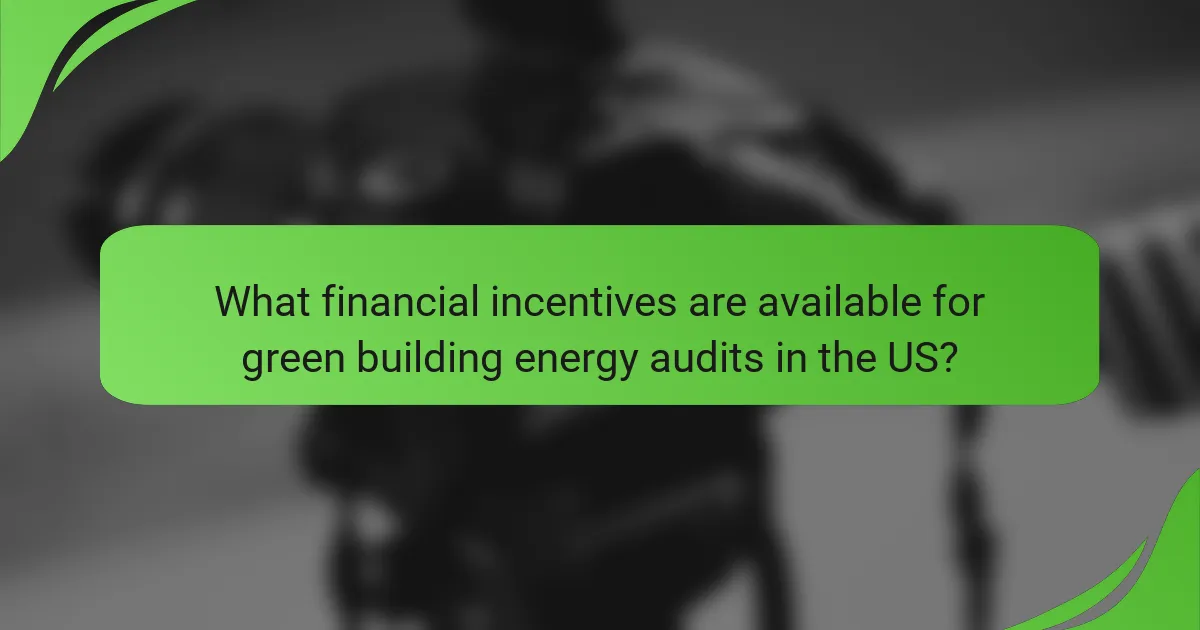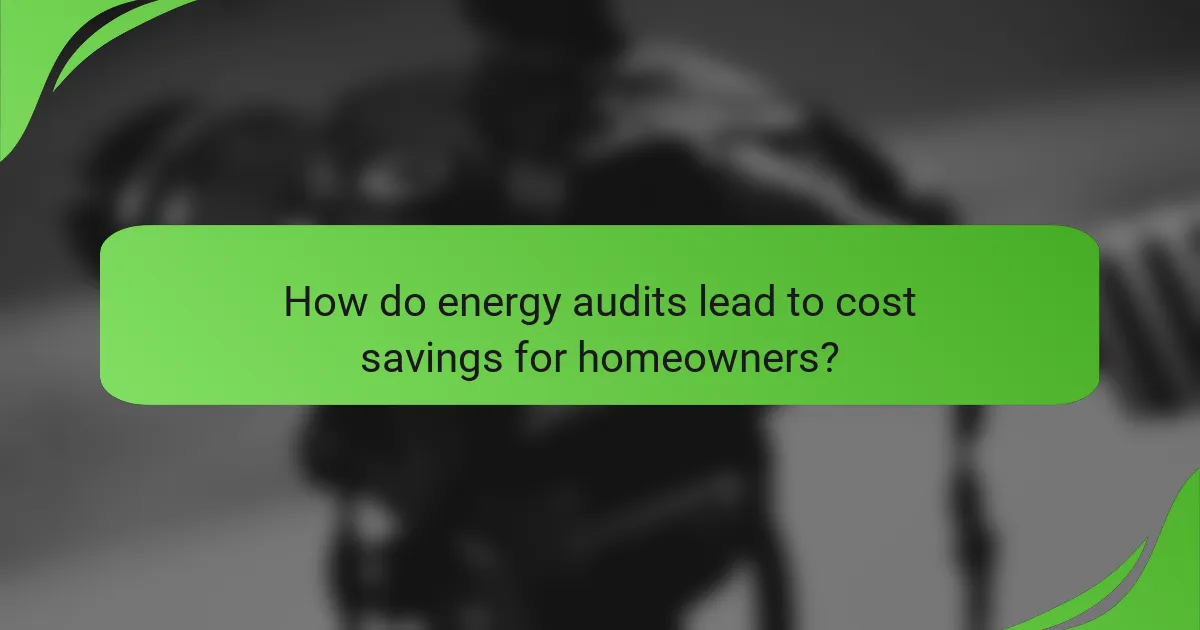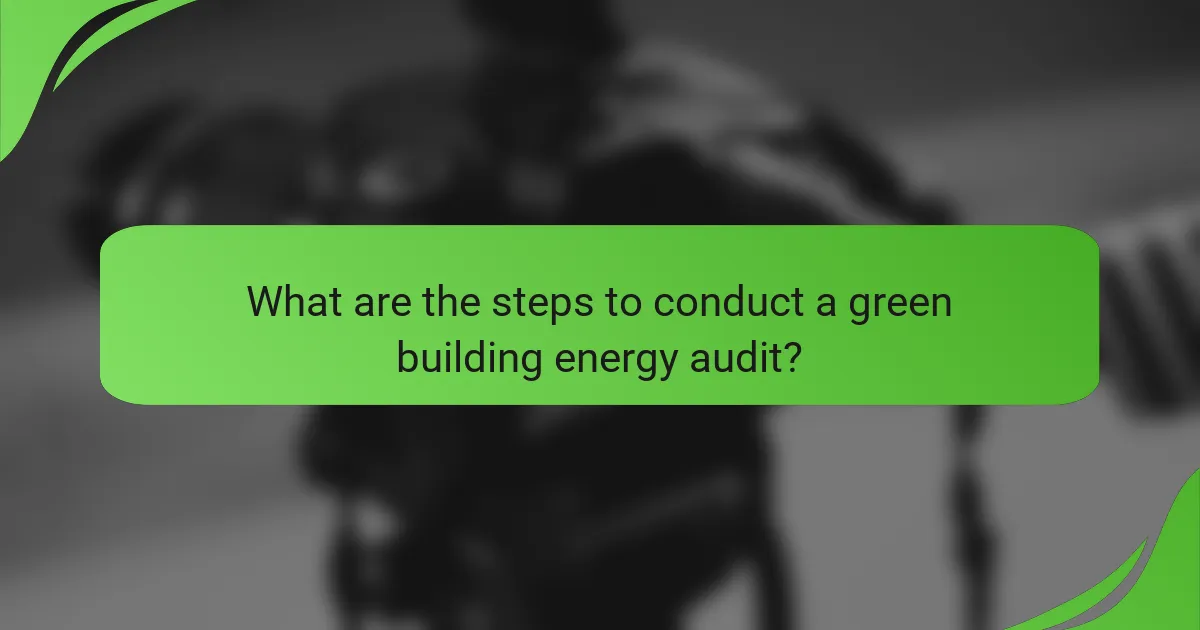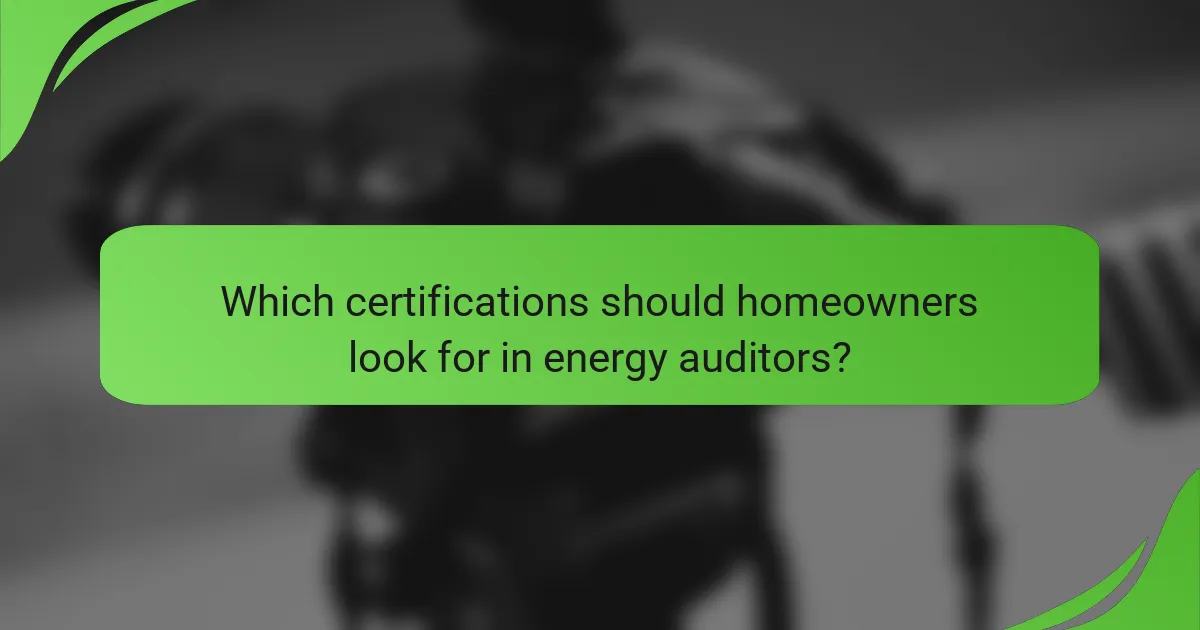Homeowners in the US can benefit from various financial incentives for green building energy audits, which are essential for reducing energy consumption and enhancing efficiency. By identifying energy waste, these audits not only lead to significant cost savings on utility bills but also increase property value and lower long-term maintenance costs.

What financial incentives are available for green building energy audits in the US?
Homeowners in the US can access various financial incentives for green building energy audits, which help reduce energy consumption and improve efficiency. These incentives include federal tax credits, state-specific rebates, utility company incentives, energy efficiency grants, and PACE financing options.
Federal tax credits
Federal tax credits are available for homeowners who invest in energy-efficient upgrades identified during energy audits. These credits can significantly reduce the overall cost of improvements, often covering a percentage of the expenses incurred. For example, homeowners may receive credits for installing energy-efficient windows, insulation, or HVAC systems.
To qualify, ensure that the products meet the necessary energy efficiency standards set by the IRS. Keep documentation of all expenses and improvements for tax filing purposes.
State-specific rebates
Many states offer rebates to homeowners for completing energy audits and implementing recommended upgrades. These rebates can vary widely, with some states providing hundreds to thousands of dollars based on the energy savings achieved. For instance, California has robust programs that encourage energy efficiency through financial incentives.
Check your state’s energy office or local utility for specific rebate programs and eligibility requirements. Applying for these rebates often requires submitting proof of the energy audit and the subsequent improvements made.
Utility company incentives
Utility companies frequently provide incentives to encourage energy efficiency among their customers. These incentives may include cash rebates for energy audits, discounts on energy-efficient appliances, or even free energy assessments. The goal is to reduce overall energy consumption and lower peak demand.
Contact your utility provider to learn about available programs and how to apply. Some companies may require pre-approval before conducting an energy audit to qualify for incentives.
Energy efficiency grants
Various organizations and government agencies offer grants for energy efficiency projects, including energy audits. These grants can help cover the costs of the audit itself or the implementation of recommended upgrades. They are often aimed at low-income households or specific communities.
Research local, state, and federal grant opportunities that align with your project. Be prepared to demonstrate how the audit and subsequent improvements will benefit energy efficiency and sustainability.
Property assessed clean energy (PACE) financing
PACE financing allows homeowners to finance energy efficiency upgrades through property taxes. This program enables homeowners to borrow money for improvements and repay it over time via their property tax bill. The financing is tied to the property, not the individual, which can make it easier to transfer if the home is sold.
To participate in PACE, check if your state or locality offers this program and understand the specific terms and conditions. This option can be particularly beneficial for homeowners who may not have the upfront capital for energy improvements.

How do energy audits lead to cost savings for homeowners?
Energy audits help homeowners identify areas where their properties waste energy, leading to significant cost savings. By addressing these inefficiencies, homeowners can lower their utility bills, enhance property value, and reduce long-term maintenance expenses.
Identification of energy inefficiencies
Energy audits systematically assess a home’s energy use, pinpointing inefficiencies such as air leaks, inadequate insulation, and outdated appliances. Auditors often use tools like blower doors and thermal imaging to detect these issues. Homeowners can then prioritize improvements based on the audit findings.
Common inefficiencies include poorly sealed windows and doors, which can account for a substantial percentage of energy loss. Addressing these areas can lead to immediate improvements in energy efficiency.
Reduction in utility bills
By implementing the recommendations from an energy audit, homeowners can significantly reduce their monthly utility bills. For instance, upgrading to energy-efficient appliances or improving insulation can decrease heating and cooling costs by 20-30%. This reduction translates into substantial savings over time.
Additionally, many utility companies offer rebates or incentives for homeowners who make energy-efficient upgrades, further enhancing the financial benefits of conducting an energy audit.
Increased property value
Homes that undergo energy audits and implement recommended improvements often see an increase in property value. Energy-efficient features are attractive to potential buyers, who may be willing to pay a premium for lower operating costs and a reduced environmental footprint.
Investing in energy efficiency can yield a return on investment (ROI) of up to 70% or more, depending on the improvements made. This makes energy audits not just a cost-saving measure but also a strategic investment in a home’s future marketability.
Long-term savings on maintenance
Energy audits can lead to long-term savings on maintenance by identifying issues before they escalate into costly repairs. For example, improving insulation can prevent moisture buildup, reducing the risk of mold and structural damage.
Regularly addressing energy inefficiencies can extend the lifespan of HVAC systems and other appliances, minimizing replacement costs. Homeowners who proactively manage energy use often find that their overall maintenance expenses decrease over time.

What are the steps to conduct a green building energy audit?
A green building energy audit involves a systematic evaluation of a home’s energy use to identify opportunities for efficiency improvements. The process typically includes an initial consultation, an on-site assessment, analysis of the results, and implementation of recommended changes.
Initial consultation with an auditor
The first step in a green building energy audit is to schedule an initial consultation with a qualified energy auditor. During this meeting, homeowners discuss their energy concerns, goals, and any specific issues they have noticed, such as high utility bills or drafty rooms.
The auditor will explain the audit process, what to expect, and any potential costs involved. This consultation sets the stage for a tailored approach to the energy audit, ensuring that the homeowner’s needs are prioritized.
On-site assessment of energy use
Next, the auditor conducts an on-site assessment to evaluate the home’s energy consumption. This includes inspecting insulation levels, windows, heating and cooling systems, and appliances. The auditor may use specialized tools, such as blower doors and infrared cameras, to detect air leaks and thermal inefficiencies.
Homeowners should be prepared to provide access to all areas of the home, including the attic and basement. This thorough examination helps to pinpoint specific areas where energy efficiency can be improved.
Analysis of audit results
After the on-site assessment, the auditor analyzes the collected data to identify energy-saving opportunities. This analysis typically includes a detailed report outlining findings, potential savings, and cost estimates for recommended improvements.
Homeowners should review this report carefully, as it will highlight the most impactful changes they can make. The auditor may also provide insights into available financial incentives or rebates that can help offset the costs of improvements.
Implementation of recommended improvements
The final step is to implement the recommended energy efficiency improvements based on the audit results. Homeowners can choose to tackle these upgrades themselves or hire professionals for more complex tasks, such as installing new insulation or upgrading HVAC systems.
Prioritizing improvements that offer the highest return on investment is crucial. Homeowners should also consider local incentives, which can significantly reduce upfront costs. Regular follow-ups with the auditor can help ensure that the improvements are effective and that further adjustments are made as needed.

Which certifications should homeowners look for in energy auditors?
Homeowners should seek energy auditors with recognized certifications to ensure they receive reliable and effective assessments. Key certifications include the Certified Energy Manager (CEM), Building Performance Institute (BPI) certification, and RESNET HERS Rater certification, each indicating specific expertise in energy efficiency and building performance.
Certified Energy Manager (CEM)
The Certified Energy Manager (CEM) credential is awarded by the Association of Energy Engineers (AEE) and signifies a professional’s expertise in energy management. CEMs are trained to analyze energy consumption patterns and identify opportunities for cost savings and efficiency improvements in residential buildings.
When hiring a CEM, look for their experience in residential energy audits and their ability to provide actionable recommendations. A good CEM will help homeowners understand potential energy savings, often ranging from 10% to 30% of energy costs, depending on the home’s current efficiency level.
Building Performance Institute (BPI) certification
The Building Performance Institute (BPI) certification focuses on the overall performance of buildings, including energy efficiency, comfort, and safety. BPI-certified professionals are trained to conduct comprehensive assessments that consider insulation, air sealing, and HVAC systems.
Homeowners should consider BPI-certified auditors for their holistic approach to energy efficiency. These auditors can help identify issues such as air leaks or inadequate insulation, which can lead to significant energy waste and higher utility bills. Engaging a BPI-certified auditor can lead to improvements that save homeowners hundreds of dollars annually.
RESNET HERS Rater certification
The RESNET HERS Rater certification is specifically designed for professionals who assess a home’s energy performance using the Home Energy Rating System (HERS). HERS Raters provide a standardized score that reflects a home’s energy efficiency, allowing homeowners to compare their home against others.
Choosing a RESNET HERS Rater can be beneficial for homeowners looking to understand their energy consumption in a quantifiable manner. A lower HERS score typically indicates better energy efficiency, which can enhance property value and qualify homeowners for various energy efficiency incentives and rebates.

What are the local variations in energy audit incentives across major US cities?
Energy audit incentives vary significantly across major US cities, reflecting local policies and funding availability. Homeowners can benefit from different financial incentives, including rebates, tax credits, and grants, depending on their location.
New York City
In New York City, homeowners can take advantage of the NYC Energy Efficiency Corporation’s programs, which offer rebates for energy audits and subsequent upgrades. The city also provides property tax abatements for energy-efficient improvements, making it financially attractive for residents to invest in green building initiatives.
Los Angeles
Los Angeles offers several incentives through the Los Angeles Department of Water and Power, including rebates for energy audits and energy-efficient upgrades. Homeowners can receive up to several hundred dollars back for completing an energy audit, which can lead to significant long-term savings on utility bills.
Chicago
In Chicago, the Energy Impact Illinois program provides financial incentives for energy audits, including rebates and low-interest loans for energy-efficient renovations. Homeowners may receive up to a few thousand dollars in rebates, depending on the scope of their energy-saving projects.
Houston
Houston’s energy audit incentives are less formalized but can include rebates from local utility companies for energy efficiency improvements. Homeowners are encouraged to check with their utility provider for available programs, which may offer cash back for energy audits and subsequent upgrades.
Miami
In Miami, the local government promotes energy efficiency through the Miami-Dade County Energy Efficiency Program, which offers rebates for energy audits and upgrades. Homeowners can benefit from financial assistance that covers a portion of the audit costs, making it easier to implement energy-saving measures.
